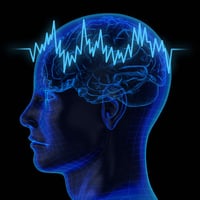Light therapy has been shown to be an effective treatment for bipolar depression, but there have...
Answers About Antidepressant-Induced Mania in Youth Remain Elusive
 |
Chang described how rates of AIM appear higher in such specialty clinics than is recognized in the literature. There is no clear evidence that antidepressants accelerate the natural course of bipolar disorder development in overall samples, but Chang recommends that in individual cases prescribers proceed cautiously when using these drugs in youth already at risk for developing bipolar disorder, such as those with ADHD and mood dysregulation, a history of AIM or psychosis, or a family history of bipolar disorder.
A recent study shows that the prevalence of bipolar disorder in youth is similar to that in adults. Read more in Psychiatric News here. Read more about bipolar disorder in the Handbook of Diagnosis and Treatment of Bipolar Disorders from American Psychiatric Publishing.
(Image: Stanford University)





